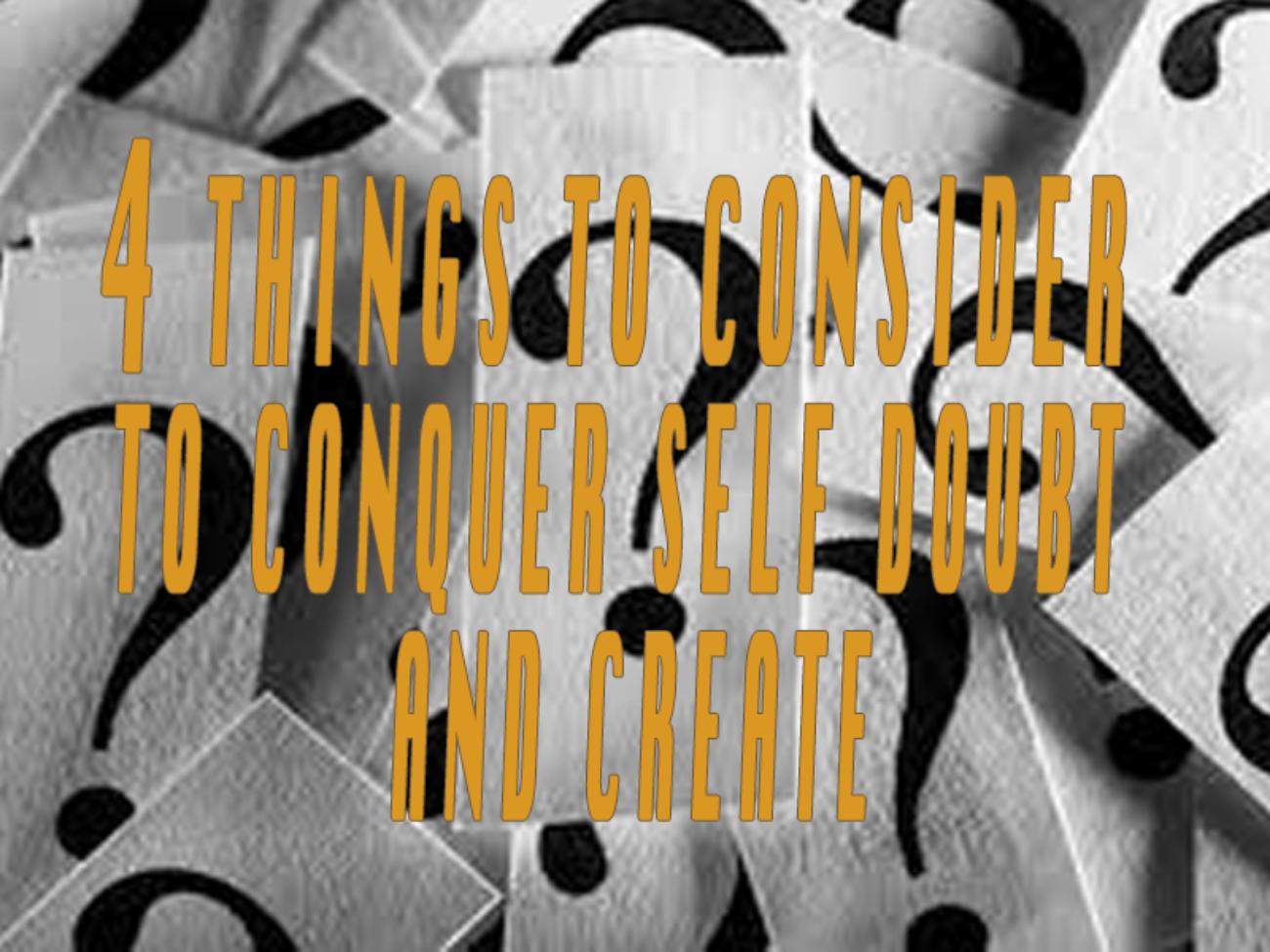Achickwitbeatz presents the Instrumental Intel podcast, bringing you information instrumental to your artistic career including music industry news & tips, insights & interviews, and beats for your inspiration. Listen on Saturdays at 7 pm EST on Grander Radio and Achickwitbeatz.com.
Follow on Facebook, Instagram, Twitter, YouTube Audiomack & SoundCloud, and subscribe on your favorite podcast platform. Download the Grander Media app to listen to Grander Radio on the go.
- Art
- Independent Labels
- Internet Radio
- Music Documentaries
- Album Reviews
- Music History
- Music Industry News
- Free Game Friday
- Free Downloads
- Poetry
- Books
- Interviews
- Did You See It?!
- Hip Hop History
- Hear Here
- Music News
- Hip Hop Documentaries
- Music Marvels Radio Show
- Think Piece Thursday
- Mini Documentaries
- Instrumental Intel
- Music Humor
- Indie Analysis
- Conversations & Quotables
- Music
- Resources for Artists
- Podcasts
- Beats/Instrumentals
- Music Education
00:01
Hey, thank you so much for tuning in to Instrumental Intel. I am your host, music producer Achickwitbeatz. And I'm glad that you've joined me. Today's episode has music industry news, instrumentals by me for your inspiration. And later I'll be joined by my special guest, Billboard charting, Intercept music artist, Michael Gilas. So it's going to be a good time. I'm elated to be bringing this episode to you. And before I drop that first beat, I've got to give a shout-out to my home station,
00:28
Grander Radio out of Grand Rapids, Michigan, and with that, let's go.
[BEAT BREAK]
13:13
Alright, I'm back with the music biz brief. First up, Spotify founder Daniel Ek will step down as CEO in January of next year to become executive chairman, while current co-presidents Gustav Söderström and Alex Norström will take over as co-CEOs. Soderström will lead product and technology, and Norström will oversee business and content. The company says the move reflects how Spotify already operates and will help it scale globally. Also,
13:42
BMG and Spotify have signed a new direct U.S. publishing licensing deal, delivering higher royalties to songwriters beyond the traditional Copyright Royalty Board model. The multi-year agreement follows similar deals Spotify recently struck with Kobalt and all three major publishers. Both companies say the new structure will let songwriters share more directly in the value of their work, combining payments from the deal with the existing MLC royalties for improved payouts.
14:07
BMG says this aligns with its goal of managing digital relationships in-house, ensuring fair representation and better data access for its writers, while Spotify calls it a step forward for more flexible and collaborative licensing future. Alright, even more Spotify news. They've rolled out a new ChatGPT integration that lets both free and premium users get personalized music and podcast recommendations directly through chat.
14:35
Available across 145 countries on web and mobile, users can ask for suggestions by mood, genre, or theme, and then open results instantly in the Spotify app. Premium users get tailored picks, while free users can access curated playlists. Spotify says it won't share listener data with OpenAI, keeping user privacy and artist content secure. Next, while many musicians worry about how generative AI could hurt their royalties,
15:03
French startup Claimy is using AI to help artists recover lost income. It just raised 1.5 million euros in pre-seed funding to expand its AI-powered rights administration platform, now active in France and the UK. Claimy audits publishing catalogs, tracks uses of songs across recordings and social media, and automatically files claims for missing royalties. It currently manages rights worth 6 million euros across 160,000 works,
15:32
and plans to expand across Europe and into the US to help ensure artists get everything they're owed. Also, three new artist-focused platforms have launched, each offering different takes on how music can be distributed and monetized. Tape Deck gives artists 80 % of revenue and uses an algorithm that favors new music discovery. UK-based StrayedBase lets fans buy fictional royalty shares through digital trading cards that can include perks like merch,
16:00
or early ticket access with artists like Skepta and Tiwa Savage already on board. Lastly, AuroMasters debuts a high-resolution spatial audio service using its own auto 3D format, also offering artists an 80 % revenue share and aiming to grow its curated catalog quickly. Next, SongView, the joint public performance copyright database launched by ASCAP and BMI is expanding. For the first time, data from all four major US pros
16:28
ASCAP, BMI, SESAC, and Global Music Rights will be integrated into the platform covering over 38 million works. The update aims to give the music community a single authoritative source for songwriter, publisher, and ownership information, improving transparency and licensing. Independent artists can access SongView for free through the ASCAP and BMI websites. Alright, Universal and Sony Music have teamed up with Stanford Spinout SoundPatrol
16:56
tackle AI copyright theft using new neural fingerprinting technology. Unlike traditional fingerprinting, which matches exact snippets, SoundPatrol's system can detect covers, remixes, and AI-generated tracks that borrow from existing works. This could give rights holders new evidence in ongoing lawsuits against AI music companies and strengthen protections for creators as generative tools spread.
17:21
And speaking of which, a US judge has reinstated all copyright claims filed by Universal, Concord, and ABKCO against AI company Anthropic, reversing an earlier decision that dismissed most of the case. The publishers accuse Anthropic of training its Claude chatbot on unlicensed song lyrics and enabling users to reproduce copyrighted lyrics amounting to direct, contributory, and vicarious infringement.
17:48
The judge ruled that Anthropic's own guardrails, meant to prevent it, suggest the company knew about potential copyright issues, making the claims plausible enough to proceed. The publishers are now expected to push for a settlement, especially after Anthropic recently raised $13 billion and settled a separate lawsuit with authors for $1.5 billion. Next, Universal Music Group
18:11
Quietly launched House of Carmen, a new in-house creator marketing app that pays influencers to promote artists and releases on TikTok and Instagram. The platform lets Universal manage campaigns directly, from creator selection and content approval to payments, cutting out third-party agencies. Creators with at least 1,000 followers can join, earning through paid briefs or performance-based challenges. Initially launched in the UK with plans to expand to Germany and the US,
18:40
House of Carmen reflects Universal's push into its own marketing tech and data while tapping into the $32 billion creator economy through more authentic grassroots influencer campaigns. finally, Hybe America has launched Hybe Label Service, a new US-based division designed to provide global distribution, manufacturing, and marketing support for both Hybe artists and independent acts.
19:05
The division will be led by Ryan Hyeong Woo Noh with a team including former executives from Big Machine, Warner, and Interscope. This expands HYBE's US operations and positions the company as a stronger player in label services, offering artists more tools to scale internationally while maintaining creative independence. Alright, that's a wrap for the music biz brief. I'm gonna take a quick pause for the cause and then I'll be back with my special guest, Michael Gilas, right after this. Keep it locked.
[BEAT BREAK]
33:45
Hey, I'm Achickwitbeatz, multi-genre music producer and strategist to indie artists and labels. Visit achickwitbeatz.com for resources for artists and instrumentals in various genres available for songs, vlogs, blogs, podcasts, themes, TV, film, commercials, and more. Once again, that's achickwitbeatz.com. That's A-C-H-I-C-K-W-I-T-B-E-A-T-Z.com. Let's make something happen.
34:15
Thank you so much for tuning into Instrumental Intel. I'm your host, music producer, Achickwitbeatz. And I'm thrilled to say that I have in the virtual building with me today, Michael Gilas, um a recording artist who has recently hit some phenomenal stats. Number one on amazon.com and adult contemporary hot new releases. Number one on Amazon for digital movers and shakers across all genres.
34:41
And number one, bestseller's an adult contemporary. So, you know, before you go ahead and introduce yourself, I just want to say thank you for taking time out of your busy schedule to come and share your story. So if you could give us a little background, you know, who is Michael Gilas and how did you actually get into music? First, thanks for having me on the show. What an entrance. I'm a fellow with that. Appreciate it. Well, you know, I've really sort of around music my whole life.
35:09
you know, of ran parallel to sort of my business life. And I never really had the opportunity to sort of get into music. It's not an easy thing to get into. I guess it's kind of parallel to acting, which I don't know anything about either, you know, and I had an opportunity about four years ago, I actually had a real traumatic experience. I fell off a horse, broke my neck. And as a result of that, it kind of sent me retired from business because I really couldn't physically work.
35:39
And I kind of went into the passion that I've always loved and I've always sort of played in bands and stuff like that. And then started writing and recording music and here we are today. I know fast forward, but I mean, then a lot happened between 2021 and now, but you know, it's been quite a road, you know? Wow. Okay. Who would you say were some of your early influences? You know, since you said it was a passion prior to that happening. I've been influenced by so much, even today's music, you know, I mean, you know, I,
36:09
I probably listen more to today's music than I would say I listen to older music, you know, from stuff in the 80s and the 90s and stuff like that. I find myself sort of gravitating more towards today's stuff, really. I mean, you know, I've probably heard those songs, those other songs, you know, 10 million times. No offense, I mean, I love those songs, but I mean, I probably listen more to the charts, people like Teddy Swins or, you know, Billie Eilish kind of thing.
36:38
I probably gravitate towards more that sort of music than I say I listen to older music. Okay. So you named a few of those, I guess maybe starting out, what are some of the first artists that you remember that kind of made you think, maybe I should. Well, yeah, you know, when I was first learning to play the guitar, I had a guitar teacher who was a Beatles freak. And, you know, he just sort of said, you got to kind of learn how
37:07
those guys kind of do things. If you're to start to write songs, whether you like the Beatles or not, you know, it's a good idea to sort of understand how they how they work and how to put structure together. So it was kind of that all those kind of things. He was really a freak of that kind of thing. Like sort of disco even, you know, Donna Summer kind of stuff, you know, way back, you know. So it was all that kind of music, I think that had such an influence in Motown. I mean, I still
37:37
you know, have a very Marvin Gaye influence, which I love that kind of that sound. And that's kind of the sound that I have. So, you know, and then trying to bring it current, you know, it's been kind of a challenge. Which I could get for any artist. Yeah, absolutely. um I have actually been kind of like the opposite for a while until recently. So I was listening to a lot of older stuff. What are you listening um
38:06
a lot of Hip Hop, uh R&B music. Sure. But uh yeah, for the most part, like in the car, to and from, I was listening to a lot of old school Hip Hop. But then recently this year, there's been a lot of new releases that I've actually enjoyed. And so this has been a pretty interesting year for me.
38:26
I'm like, okay, you know, like there's some new stuff that I kind of rock with. had kind of gotten what they say, like the old ears, like once you hit a certain age, sometimes you get kind of You kind of move it around. Yeah. You know, so yeah, I get what you're saying about, you know, kind of gravitating towards the new stuff. Cause now there's a lot of stuff that I like to hear. A lot of times I find myself kind of comparing it to the old stuff, like the elements that I liked from it. So to hear what you were saying about how, you know,
38:56
You grew up on that stuff, but you're listening to the new stuff and kind of still taking some of those foundational elements. Um, makes a lot of sense. That is not an easy feat. Um, I was able to check out a few of your songs and the structures and everything, like, even though it's fresh in new, like you can feel like the, the, the, it's retro like OG foundations. Sure. And yeah, you you, you mentioned Hip Hop. I remember the first time I actually really started to.
39:26
like a wow, I remember there was an MTV unplugged with Jay Z. Do you remember it? Yeah. And there was a song called Girls, Girls, Girls. Yeah. And I remember going, oh my God, this guy's a genius, you know? And it started me and it opened me up to a different way of thinking about music. know I So Zenk Don and Jay Z.
39:55
Yeah, mean, MTV has come a long way. It's changed, it's not even the way we knew. But if you remember that, sort of that, that kind of unplugged thing. But yeah, you're right about my music. It has a retro feel, but it's also contemporary. We've tried to bring it that way. And think if you're going to be on the charts, you're going to have to be. Absolutely. Because I feel that people are kind of hungry for, you know, something a little bit different, you know, not exactly, you know, fresh that...
40:25
So fresh that it kind of abandons all the rules, but yeah, like I said, with a lot of this uh newer Hip Hop that I've been listening to, same thing. You can see those old elements. So finding a way to kind of bridge it together. feel like it's very powerful thing right now. uh And obviously, you you're doing very well in the charts. So congratulations on your accolades. uh Yeah. Could you talk a little bit about working with Intercept and- Sure. Intercept came about from
40:54
um I had been introduced to one of the oh founders, Ralph, and he was very interested in my music. And he said, I think we can work with you and we'd like to work with you. So that relationship then started with them. And I have to say it's been a great relationship. mean, there's a lot of good people over there that really taken good care of me and sort of guided me. I mean, I don't know a lot about promotion.
41:23
You know, I'm songwriter. What the heck do I know, you know? I mean, it's a whole thing to promote yourself and all this. It's its own thing. know, maybe years ago you could just put a song on the radio and be okay. But today it needs promotion. It needs an image. There's a lot of things, yeah? Yeah. That are constantly changing. So I'm very happy to be with Intercept. They're really good people.
41:51
They've done me well. How's that? Go for it. That's awesome. Yes, I was blessed to have Ralph and Jesse on the podcast before and yeah, they're great people. Really? That's great. Yeah. And Jesse too. Danielle over there. mean, there's some really good people. So, you know, shout out to them. Absolutely. Yes. So, okay. You mentioned songwriting. Can you tell us a little bit about how...
42:18
You kind of get into the zone of, do you set aside designated time? Do you just kind of go like when the vibe hits you, like how do you kind of get into the mood to be able to write music? Yeah, it's a very interesting question. You know, I talk to a lot of songwriters how they write, you know, always curious, you know, especially like when I'll listen to somebody maybe on an interview, if they talk about songwriting, if they talk about their trip to Hawaii, not so crazy about that, you know, but if they're talking about songwriting, I'm very curious to how other people do it, you know.
42:47
I mean, they start with the lyrics and so this for me, it's mostly a process of sort of noodling around. You know, I sort of pick up my guitar. kind of sit, I have about three places. I'm pretty superstitious that I actually sit, actually have a couch and outside here and one other place and that's it. It seems a little strange, but I feel it's sort of the place where I can kind of, but sort of become an area of creation. And then I sort of noodle around.
43:17
And also things that I've been thinking about, you know, maybe.
43:22
past relationships or my current situation in life. um Those kind of things haunt me a lot, know, I'm sure like everybody else. And I try to bring those to the songs. And I just kind of noodle around until I have something, you just start with a title and then kind of make a story, you know, build a story around it. And then work with my producer and then it becomes sort of a homework assignment. Once you start to get the...
43:51
structure then you kind of kind of fill it in and back fill it. It's kind of like you know digging a hole and then filling it in kind of thing. Okay yeah that's a roundabout way of doing it but you kind of understand I guess right? Yeah absolutely. I'm sure listeners probably will too, since it's mostly you know other creatives as well. We all kind of have our methods if you will. uh
44:21
So yeah, you mentioned that you work with your producer, like once you start noodling and all that. So, you know, how do you, I guess that's the best way to say it. How do you convey what it is that you're trying to get across or does your producer just kind of know and fall right in the line? Well, yeah, it's another interesting way. um I usually try to tell them what I'm thinking. You know, I'll say, look, we have, I have this idea.
44:49
And this is kind of what I'm thinking and this is kind of what the narrator, I almost tell like I'm telling a story about myself, you know, kind of a thing. And I'm to tell you story about this guy goes to Miami and meets a girl, you know, and then has a romantic evening with her, but, know, in the city sees this romantic evening. So how does that all, how do we, how do we capture that music without overdoing it, overplaying it over, you know, and we kind of come to some.
45:18
understanding of how we're going to put the music together. And he does a lot of that too. And I also I'm working with Brian Kennedy up in LA. He's a pretty famous producer. produced Rihanna, Chris Brown, Justin Timberlake, he's produced Lady Gaga. And actually this particular song that just came out, I've been working with him on that. And he's, you know, he's pretty talented guy. So he kind of understands how we translate things too. Okay, yeah, that makes sense. you're familiar with those names, Chris Brown.
45:47
Absolutely. Everybody has. Megastars. Oh my God. Absolutely. So, okay. You you talked a little bit about your process and kind of what led you, I guess, back to music to actually like pursue your passion. A lot of times people will go through various hardships and don't necessarily, I don't know, I guess, have.
46:13
it in them to kind of push forward and move on to the next thing. So how do you think that you were able to do that? mean, the accident sounds like a very jarring experience, but to take that and make something positive out of it, uh how were you able to do that? And what advice would you have to offer someone listening who might be kind of struggling to get through something to get to other side? I did an interview with somebody once about just, it was about trauma.
46:42
It wasn't really about music, how I overcame the trauma of what happened, you know? And it was really almost a... If I couldn't swim, so to speak, I would drown. mean, it was almost a no choice. I was falling into a hole mentally and physically. You know, it on those pain meds. It was very difficult to come out of that. I'm sure you've heard those stories, right? Yeah. It was kind of me too. You know, after a couple of weeks, you're on it. You're in it, you know? Yeah.
47:11
basically toughen up, throw those away and then sort of pull myself physically and mentally out of this tremendous hole that I was in. there was sort of a voice in my head that said, come on, you got to do this. You what choice do you have? You need to sink now. And I think for other people, one of the things that maybe they can do is stop listening to that negative voice in the head that's just so negative all the time, always telling you, you can't do that, you're not this, you're not this. And it was there for me too.
47:41
for the longest time until I finally said, you know, enough of that voice. It's like a movie that just keeps playing in your head, you know, the same one over and over again. So I pushed that voice away each time it would come and say, listen, we can do this. We can get better. Other people have done it too, you know, and push forward. You have music and try to see if we can day by day, minute by minute kind of thing. And, you know, like I said, it wasn't an easy thing. I'm not going to sit here and tell you that I'm Mr. Positive, but I hug everybody every minute of the day.
48:10
But, you know, and there were tough days, but I think if you keep pushing, keep telling yourself you can do it, you'll do it. But it takes a lot to get that negative voice out of your head. And we all have it. Even people that are healthy, you know, are true. mean, you know, that's that terrible voice that keeps telling you what you can't do. I, that's what I did. And if I could give one piece of advice, that would be it. Stop listening to that voice.
48:40
Excellent advice. you know, I do a lot of social listening or, know, having online conversations with artists. And I feel like so many, you know, kind of deal with, you know, imposter syndrome or, you know, just like the doubt, you know, there's so many things, like you said, that negative voice trying to chip away at it. So yeah, I think your advice is excellent and, um, definitely needed.
49:06
Because sometimes I even have to kind of try to tackle it myself. So yeah, like I think it's something that we all deal with from time to time. And yeah, I appreciate you sharing that bit of advice. It's helpful for me and I'm assuming for listeners as well. I think if you can realize that that voice is just a phantom, you know, and it's not real. And that's really what I realized that that voice wasn't real.
49:36
That was really the click that said, come on, this is, and once, I think once you get over that hump of that idea, you almost begin to become happy again. You know? Yeah. If you know what I mean, I'm sure you've been there. You know what I mean? When you get that, when the negative voice, you just, I just, I'm happy. just can't, can't get out of this hole. And then you, then that switch flips. And then suddenly life becomes like, you know,
50:05
Things are pretty good. Yeah. Yeah. Yeah. Yeah. I know exactly what you mean. Yeah. So, okay. You know, with the songs and stuff that you've written and performed, do you have any, um, let's see, how can I say this? They're, all your, your babies, but are there any in particular that you're like really proud of? Like, you're kind of my favorite right now. Well.
50:33
I guess always the newest song because I've heard it the least. know, mean, by the time you start writing a song and finishing it, it's probably about 2000 times. You know what By the time you play it, go it, write it, produce it and listen to it, it's a lot, you know, and you sometimes have to step away from it because you can't hear it anymore. So I guess everything that I do new and even the stuff that I'm working on now that isn't out, and then that becomes old and you know, like a pair of jeans.
51:02
You first loved it, right? then, yeah. Same idea. You just said about, you know, you can't listen to it anymore. just saw a post, I wish I could remember the user. I'm pretty sure it was on threads, but it was basically saying like the song is released when the artist is like, I can't listen to this anymore. And it was like, you know what? I 100 % feel that like, know, tweak it, you listen to it,
51:31
change that, that's up too high, that, do that. But at some point though, I think if you overdo it, it ruins its authenticity. And I think one of the things we're trying to do, at least I'm trying to do, is at least keep that authenticity. It doesn't be perfect, it may be this little crack in my voice. I think that's okay to leave that. It sounds more real, how somebody would sound, rather than try and make everything so perfect.
52:01
Yeah, definitely. It ruins the vibe, you know? Yeah, there's something that makes it human. Yeah, that's it. some of those, you know, the course, infamous quote about knowing which mistakes to keep or something like that. You know, it's... Yeah, yeah. Sometimes it just changes the entire vibe uh to where, you know, there are some artists that I've heard, let's see, on, you know, CDs or, you know, performances on TV.
52:30
It sounds so polished, which is great. But when you get the chance to hear them without being over-produced and you hear the nuances and the notes and the pitch shifts and all that, it's just, I don't know, adds, like you said, a whole nother layer of authenticity, which kind of gives the song a deeper meaning and kind of... Yeah, think people are possibly looking for that these days. I'm hoping people are looking for authenticity. I like really much television shows and those kind of things.
52:58
Some of the documentaries come across so hard because they feel so real. I think that's one of reasons why think people like those. There's an authenticity to those. Yeah. I'm kind of getting to see the grit behind the scenes. Yeah, that's it. The grit. Yeah. It's so nice to talk with somebody that feels that way as well. uh
53:24
for my music, I cannot sing the way that I'd like to sing. So a lot of times it's hard for me to accept that maybe there's more nuance than I want. But you know, sometimes it's just like, you know, maybe, okay, that note wasn't quite right, but you got what I was, feeling that I was trying to convey. yeah. And maybe that's better. Yeah, hopefully. Well, mean, in my case, yeah, you're fine. You can sing. I'm not really...
53:52
I'm just a producer who makes music sometimes. It's a good hobby, Yeah, yeah. Fun, right? I think that's an important thing, by the way, just talking about things that got me out of the hole. Even if somebody's not necessarily a musician, if you can have something that you get up in the morning to do, I think that's very, important to keep that vibe going. I mean, you obviously have this and other things, but imagine if you didn't. Life would be pretty, pretty shallow, pretty tough to endure, right?
54:21
Yeah, it'd be unbearable. sure. And I think for a lot of people, they just find something that they really like to do. I think life can be really pretty interesting, you know? Yes. So, uh, yeah. What are some of the other things that you're interested in? Like, do you have other creative type hobbies or? Uh, well, I play chess. Okay. I like that. I, uh, I work out. Uh, I have a home here with three cats.
54:50
So, you know, they're going to take care of them. Um, you know, I have friends that, know, in the music business that I try to see often enough, but, um, I would say pretty much it's I work out, play chess, um, you know, that's pretty, and music keeps me pretty busy. Yeah. This is a full-time thing. This music thing. It's, it's, it's more than I ever expected as far as keeping me busy. Yeah. And I don't think a lot of people actually realize that, uh,
55:20
when they get into it, especially, you know, when you mentioned having Intercept to help with the promotion, I know that a lot of people who make music and they decide, okay, I'm going to do this. They're really surprised with everything that goes on behind the scenes. oh You know, how much social media prep you have to do content marketing. mean, it's just so much. like, I mean, it's a full time.
55:50
and half and then some if you're going to do it the right way. yeah, it really especially the process of recording. You're constantly I mean, I'm in the studio twice a week, at least and singing I actually vocal teacher three times a week. Wow, which is quite a bit. I mean, I because we have to keep it up, you know, and songwriting with other people during the week quite a bit of that, you know.
56:14
So it's a constant this, this, this, me and you podcast, right? all from that promotion that goes on. Exactly. There's quite a bit of that too. Yeah. I have to say, this is the most fun. I really enjoy the podcast. really do. Some of the social media stuff I have to admit is not particularly, I'm not crazy about it, but you got to do it. Yeah.
56:37
Stand over there and hold that thing for 20 minutes or stuff like that. Pretend you're coffee. It's always so funny when you see someone in the wild doing it. So like maybe they walked in to set it up and then yeah, you got to watch them walk back and then try to catch the angles. is just like, yeah. I know exactly what you're doing and I get it.
57:04
It's just part of the job. know, a lot of us, when we wanted to be creators, we didn't mean social media creators, but, you know. We just finished a video in Miami. It was pouring rain. mean, absolutely just pouring rain, right? So we're there with these umbrellas, right? Waiting for the rain to stop, you know, in between, you know, the hours go by and we finally get a break in the rain and we run out in the street. You know, it started like, you know, 10 o'clock and nine o'clock in the morning.
57:33
And we didn't finish till maybe six, seven o'clock in the evening, waiting for the rain to kind of stop. So that was pretty challenging. But all in all, it wasn't a lot of fun. I did enjoy it. Oh, great. So, you know, this half hour is just flying by so quickly. We went by in a flash. Yeah. But I want to make sure that before I let you go, everyone knows.
58:03
where to find you, follow you on social media or streaming platforms, wherever you want them to go. uh can find me Spotify. I'm on all the platforms, Apple, Spotify, all those. Also, like I said, I'm always very grateful for support from everybody out there. I said, if somebody, I've said this before, somebody can look at me and say, hey, this guy did it. He fell off a horse, he broke his neck.
58:31
You know, he, came from, you know, a pretty tough situation. I mean, I'm not saying you necessarily can be on the Billboard chart, but I think you can change your life. You know, and if somebody just says, he did it. Maybe I can too. And it resonates through the music. Great. You know, I'm very appreciative of that. Very great. Awesome. Oh, great. And, um, you know, is there anything that we should be on the lookout for? I know that you said that you're working on new stuff now. You're in the studio a lot. Quite a bit.
58:59
That new song is becoming out. There's one song that you mean Miami is out now and the video is out. So, you know, hopefully it's getting quite a bit of traction now and moving up the charts on Billboard. So that's, that's kind of nice. So again, thank you. I really appreciate the time. thank you. And I hope this is just the first in a series and I get to have you back on the show. would love to come back. Appreciate it. Awesome. All right. Well, thank you so much for sharing your story and I'm looking forward to next time already.
59:28
Thank you again. Take care. Bye. Bye bye. All right. And that's a wrap for this episode of Instrumental Intel. I've been your host, music producer Achickwitbeatz. And once again, I want to thank you for listening. I want to thank my special guest, Michael Gilas, for coming in and sharing his story and encouraging words. And I'd also like to thank my home station, Grander Radio out of Grand Rapids, Michigan. Make sure you come back next week. I got more goodness lined up for you. So until next time, you know where to find me. Tune in, tell a friend, and I'll see you then.
59:58
Peace.
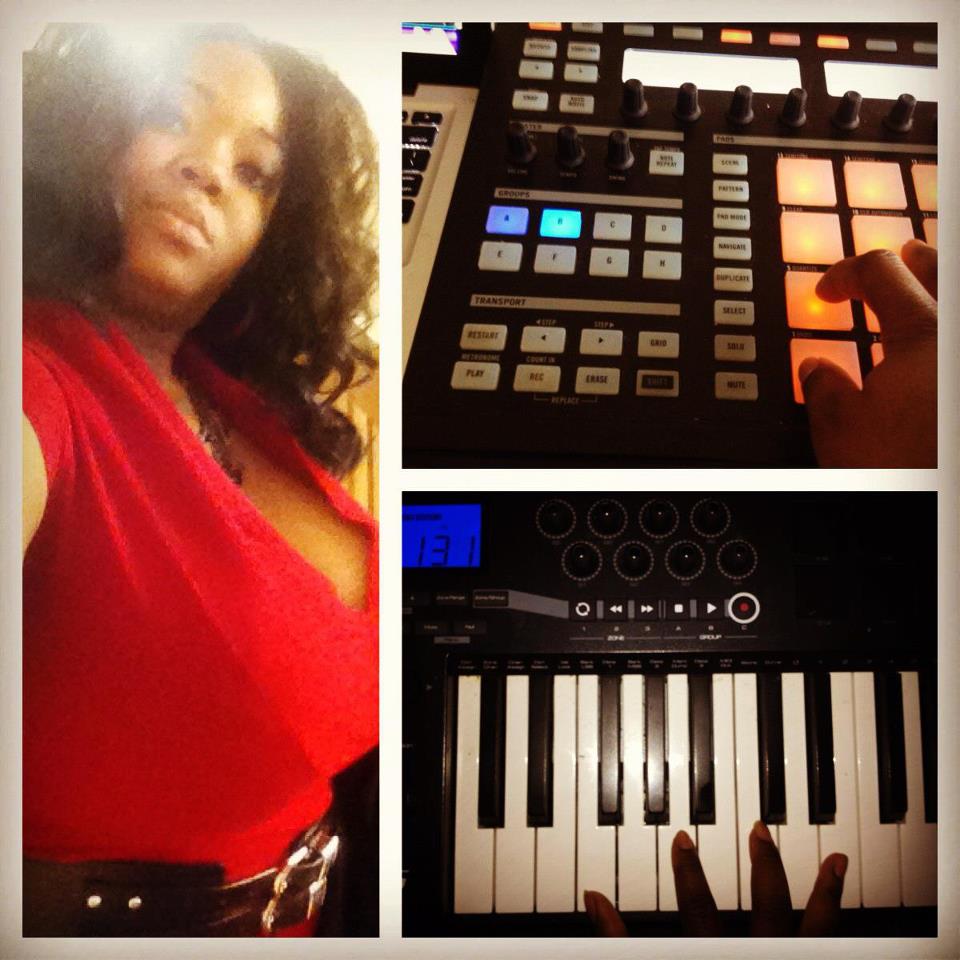
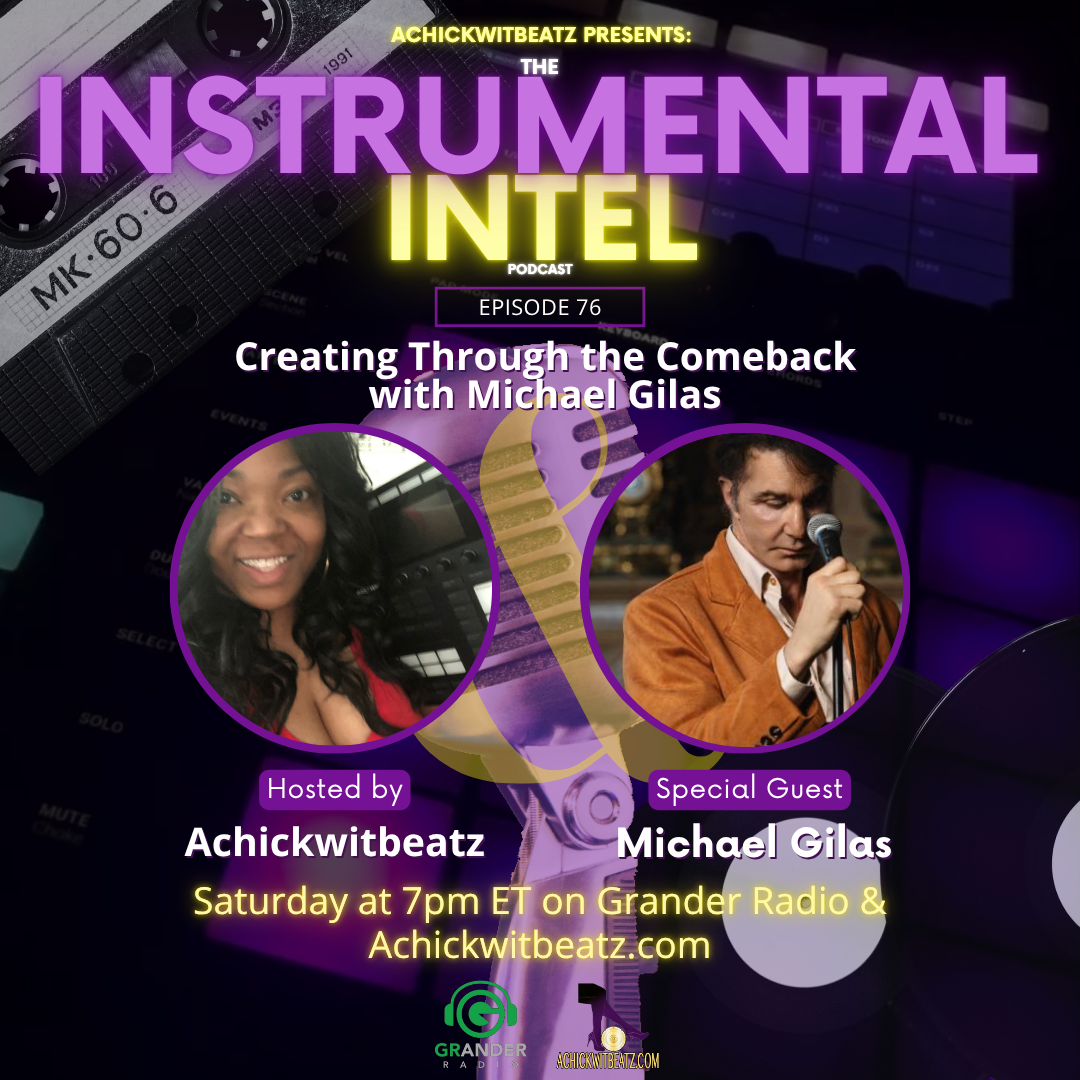






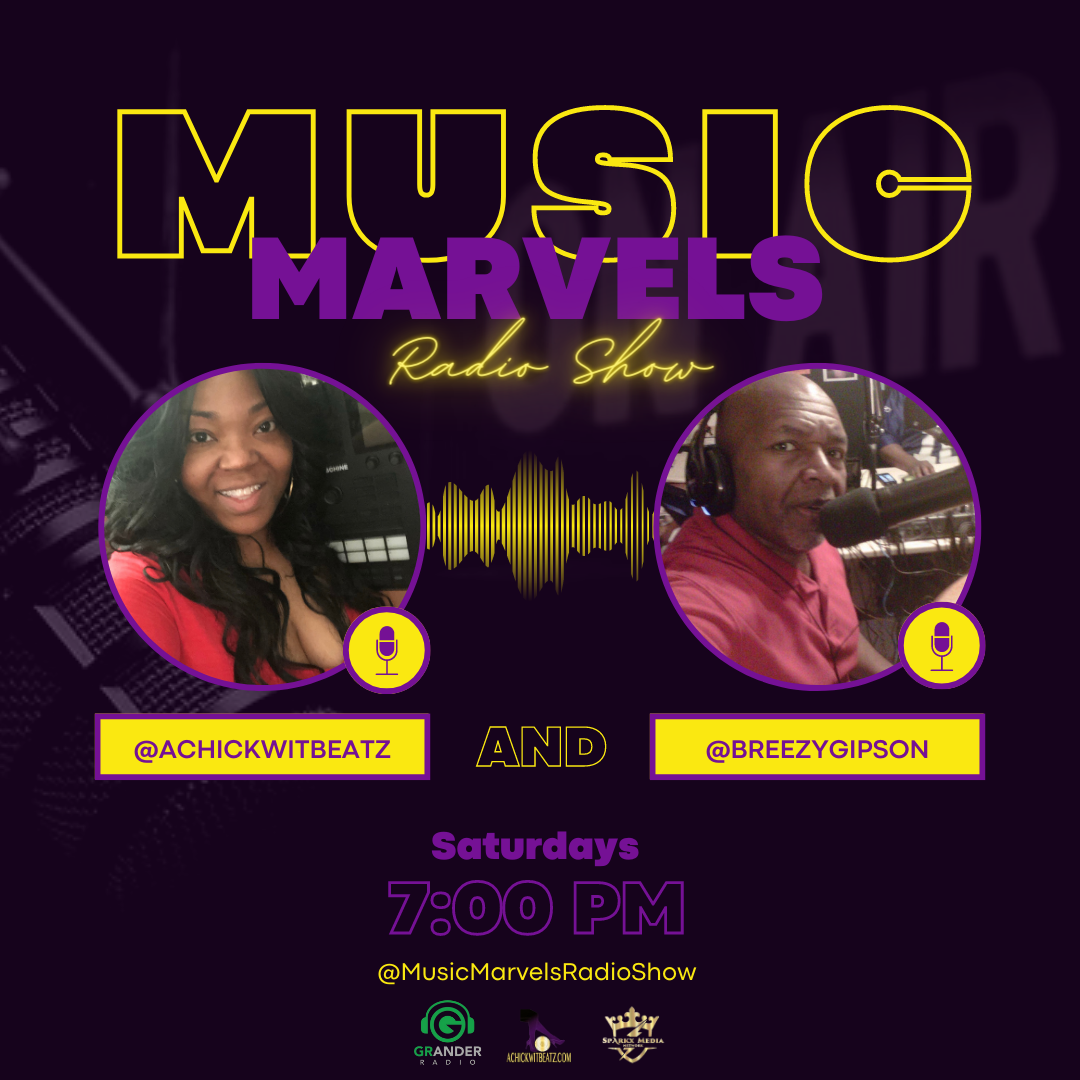
![Hear Here: Achickwitbeatz - Dopamine & Serotonin [Single]](https://images.squarespace-cdn.com/content/v1/52b0b90ae4b0293bfed0d692/1710852808557-EZYGFDIBHLBSIRFOVS1Q/Dopamine+%26+Serotonin.JPG)


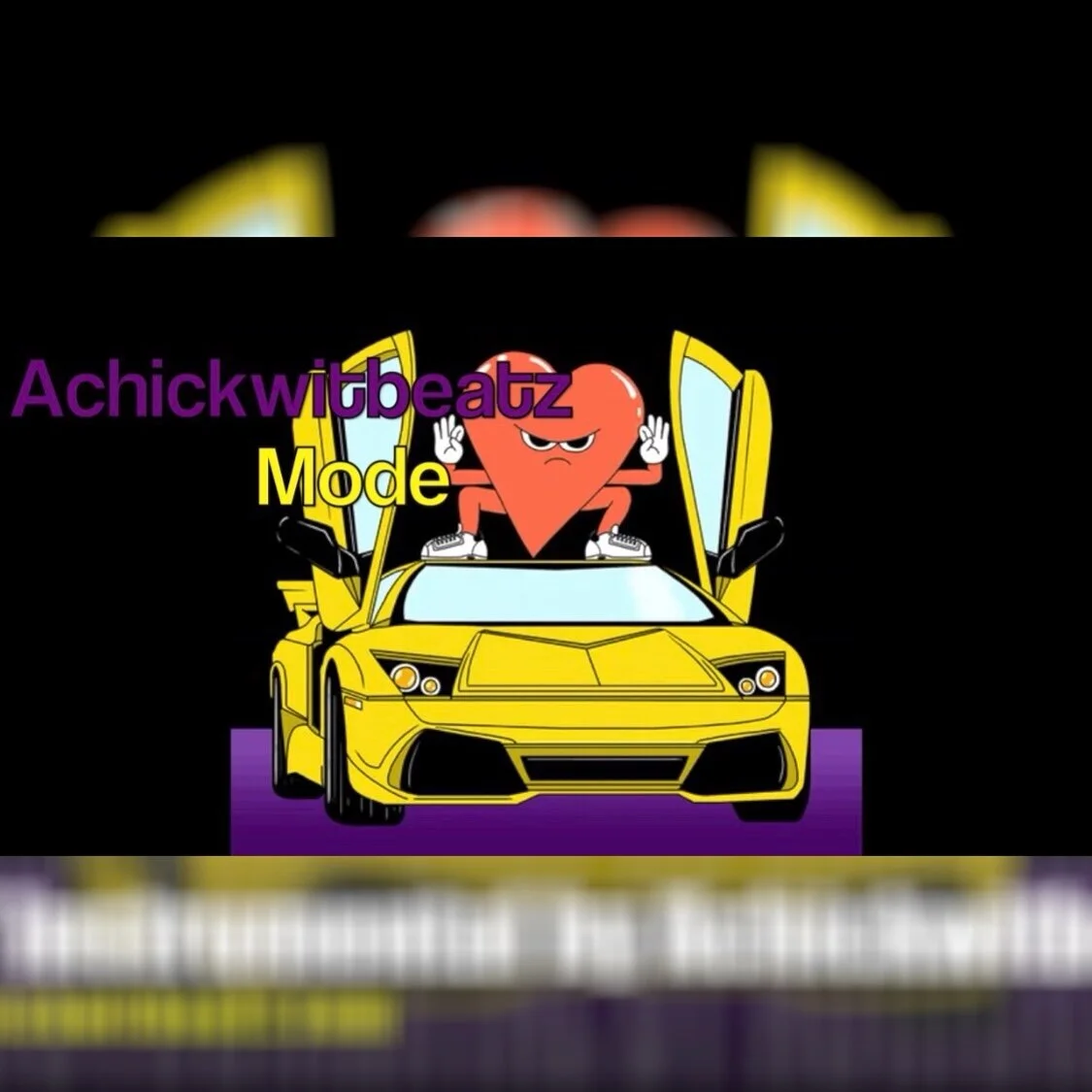
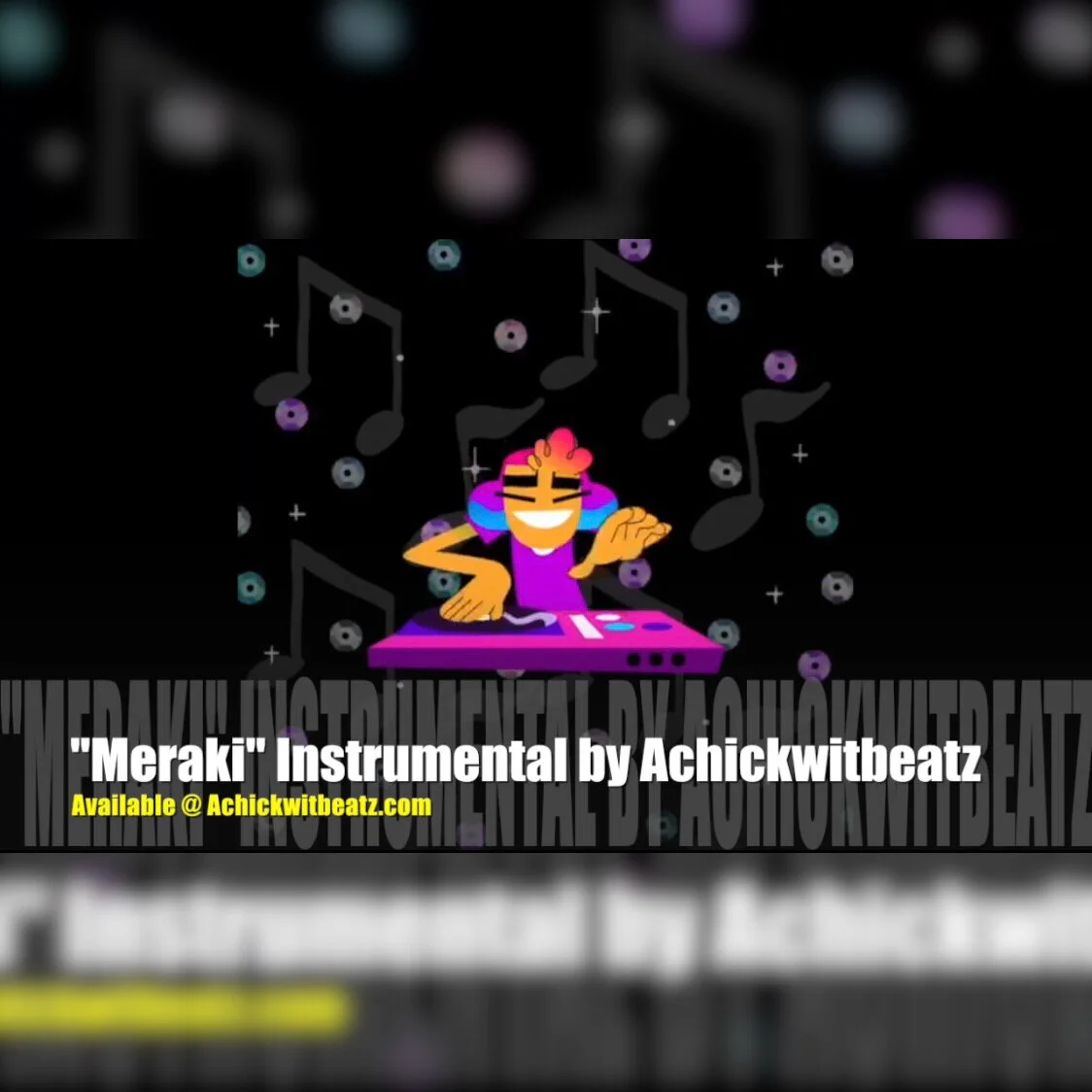





![Hear Here: Dagga Man- "Analytics" [Prod. by Achickwitbeatz]](https://images.squarespace-cdn.com/content/v1/52b0b90ae4b0293bfed0d692/1584638158548-9R55AZLWZIDFJC8LATV6/IMG_2212.JPG)







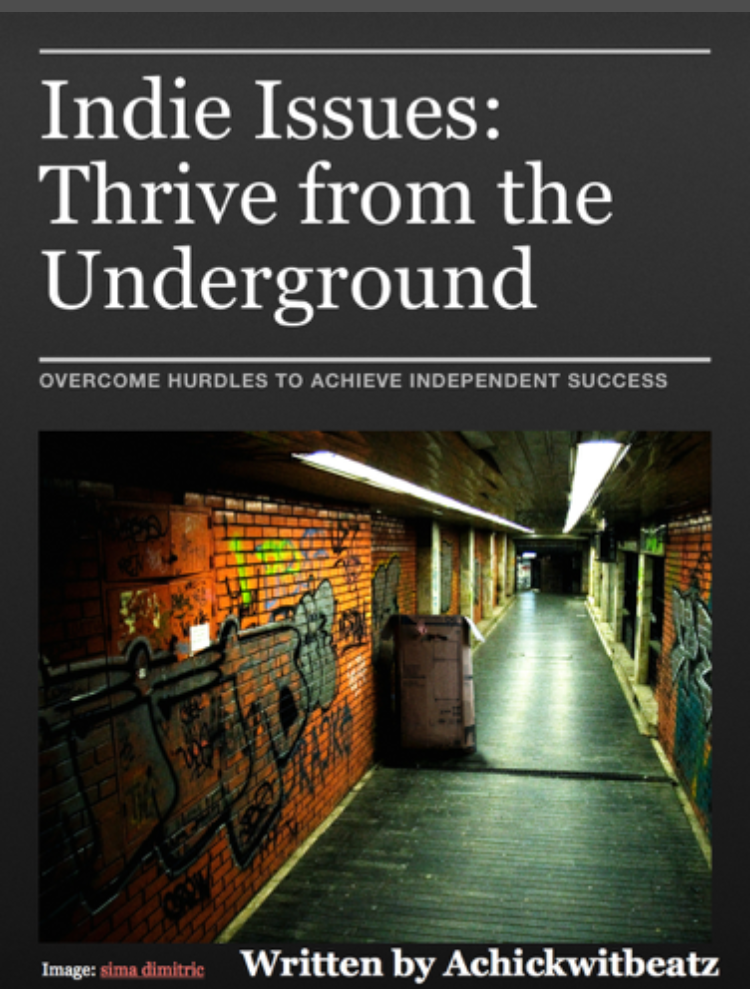
















![Making Music on a Budget [Infographic]](https://images.squarespace-cdn.com/content/v1/52b0b90ae4b0293bfed0d692/1582844361438-3JTE5NT3EL51FHXC0WJI/making-music-on_1929722%25281%2529.jpg)
